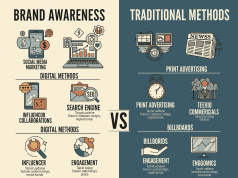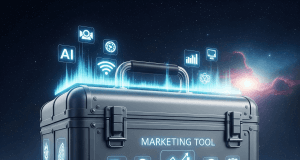In today’s rapidly evolving digital landscape, marketing technology (MarTech) has become an essential component for brands aiming to enhance customer engagement, optimize operations, and drive revenue growth. Companies that effectively leverage MarTech are not just surviving; they are thriving. This article explores several case studies of brands that have successfully utilized marketing technology to transform their operations and achieve remarkable results.
1. Spotify: Personalized User Experiences
Challenge:
Spotify, the leading music streaming platform, faced intense competition and needed to stand out in the crowded music industry.
Solution:
By leveraging advanced data analytics and machine learning algorithms, Spotify developed its recommendation engine. The engine analyzes user listening behavior to provide highly personalized playlists, such as "Discover Weekly" and "Release Radar."
Result:
These personalized experiences have dramatically improved user engagement. Spotify reported a significant increase in user retention rates and overall listening time, contributing to its growth to over 500 million active users.
2. Coca-Cola: Embracing Real-Time Marketing
Challenge:
Coca-Cola aimed to remain relevant and connect with a younger audience in a world dominated by social media.
Solution:
The brand adopted a real-time marketing strategy using social listening tools to monitor trends and consumer sentiment. During significant events like the Super Bowl, Coca-Cola utilized these insights to craft timely social media campaigns that resonated with current conversations.
Result:
This approach yielded higher interaction rates on social media platforms, with millions of shares and likes. Coca-Cola effectively rejuvenated its brand image, connecting with younger consumers and increasing sales during critical campaigns.
3. Amazon: The Power of Automation
Challenge:
Amazon, the e-commerce giant, needed to manage a vast array of customer data to provide personalized shopping experiences while keeping operational costs low.
Solution:
Through the implementation of marketing automation tools, Amazon tracks customer interactions across multiple channels. The platform uses data-driven insights to tailor recommendations and automatic follow-ups on abandoned shopping carts.
Result:
Amazon’s use of automation has led to an increase in conversion rates and customer satisfaction. The brand has seen substantial growth in sales, with reports indicating that personalized recommendations account for nearly 35% of its revenue.
4. Nike: Leveraging Customer Data
Challenge:
Nike sought to deepen its relationship with customers while differentiating its products in a highly competitive market.
Solution:
Nike introduced the Nike+ app, which integrates wearable technology and user data to provide personalized workout insights and training programs. The app gathers data on users’ fitness activities, allowing Nike to tailor its marketing efforts.
Result:
The initiative fostered stronger customer loyalty, with millions of active users engaging with the app. Nike’s direct-to-consumer sales surged, accounting for a significant portion of its overall revenue and establishing the brand as a leader in digital fitness.
5. Sephora: The Virtual Experience
Challenge:
Sephora faced the challenge of converting online engagement into in-store purchases and enhancing the shopping experience for customers.
Solution:
The beauty retailer invested in augmented reality (AR) technology through its mobile app, allowing customers to virtually try on makeup products. Additionally, Sephora’s loyalty program integrated with data analytics to provide personalized recommendations and exclusive offers.
Result:
Sephora reported increased foot traffic to stores and higher conversion rates in both online and physical locations. The effective use of AR technology engaged customers, enhancing their shopping experience and leading to increased brand loyalty.
Conclusion
These case studies illustrate how brands can harness marketing technology to navigate challenges and drive business growth. By leveraging data analytics, personalization, automation, and innovative engagement strategies, companies like Spotify, Coca-Cola, Amazon, Nike, and Sephora not only enhance customer experiences but also create competitive advantages in their respective markets. As MarTech continues to evolve, brands that invest strategically in these technologies will likely lead the charge toward future success.









